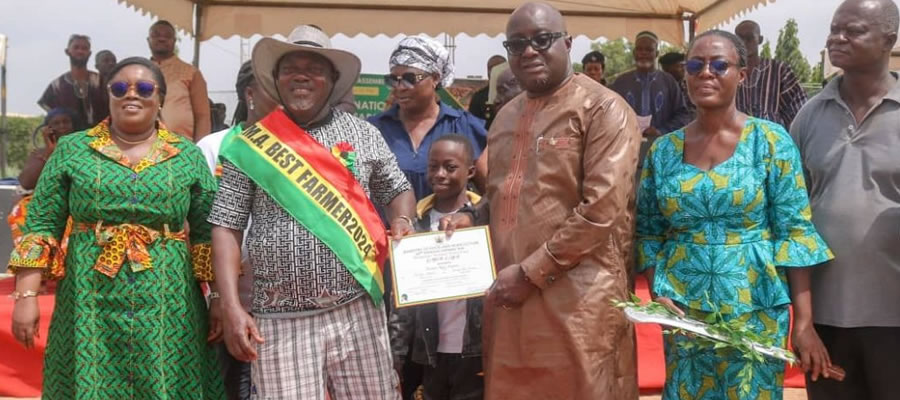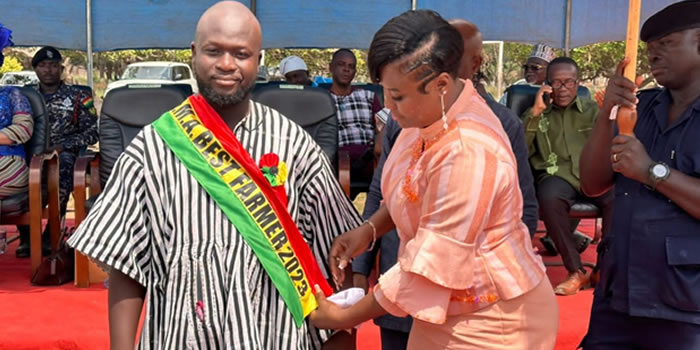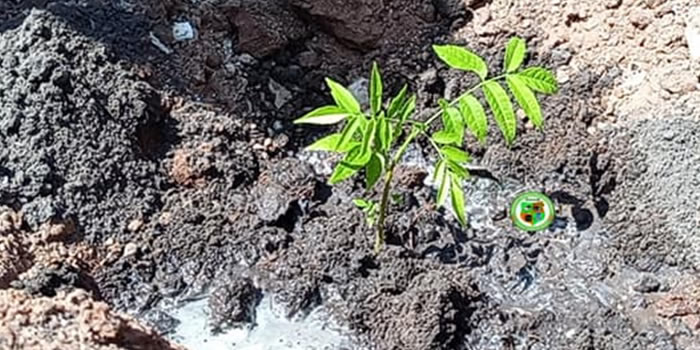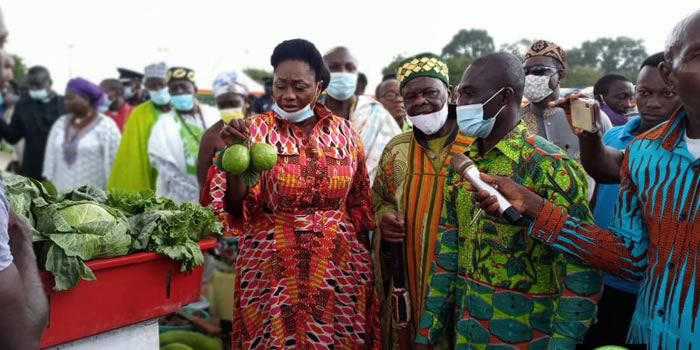

AGRICULTURE
Samuel Offei Acquah named 2024 Ga East Municipal best farmer

Date Created : 11/13/2024 12:00:00 AM : Story Author : Hafsa Obeng/Ghanadistricts.com
The event held to honor and celebrates the contributions of farmers, recognized four outstanding individuals for their dedication to agriculture in the Municipality.
The awardees included Samuel Offei Acquah, Overall Best Farmer; Abdul Salam David, Best Crop Farmer; Paul Agorsu Danklu, Best Livestock Farmer; and Mary Osei Agyeman, Best Agro Processor.
Mr. Offei Acquah, who manages a 7-acre farm in Atomic, grows a variety of crops including maize, yam, cassava, cabbage, okro, lettuce, tomatoes, cucumber, onion, ademe, and gboma.
He also raises six goats and 50 local fowls.
For his achievement, he received a certificate, a deep freezer, a 32-inch television, three knapsack machines, Personal Protective Equipment (PPE), nine cutlasses, three harvesting crates, Wellington boots, agro chemicals, a wheelbarrow, and four hermetic grain bags and sacks.
The second and third-place winners were awarded certificates and various items, including a 310-litre deep freezer, while the fourth-place winner received a certificate and a dehydrator among other prizes.
The theme for the years farmers’ day celebration was “Building climate resilient agriculture for sustainable food security” Speaking on the theme of the celebrations, Mrs. Deborah Ampofo, Municipal Chief Executive (MCE) of the Ga East Municipal Assembly (GEMA), highlighted various interventions by the Government and other key stakeholders to address climate change and food security challenges.
She acknowledged the devastating impact of climate change on agriculture and its far- reaching consequences on food security in the country.
Mrs. Ampofo called on everyone to join efforts in combating these issues to ensure a more resilient agricultural sector and sustainable food security.
“Farmers are already experiencing the effects of climate change which transform pastures and croplands around the world. Climate change affects agriculture and those who rely on it by weakening environmental health, undermining production, wiping out crops, and killing livestock, making it more difficult to earn a living.
“It is expected that all stakeholders in the agricultural value-chain, researchers, policy makers, processors, farmers and marketers, will work hard to ensure food is available and affordable for all” she appealed.
Mrs. Ampofo acknowledged the vital role farmers played in the growth and sustainability of Ghana's economy, particularly within the Ga East Municipality, and commended them for their dedication and hard work.
She said that the government had prioritized agriculture as the backbone of the economy, introducing various initiatives such as the Planting for Food and Jobs program, which have significantly transformed the agricultural sector, leading to increased productivity across the country and within the Municipality.
Amb. Michael Aaron Oquaye Jnr, Chief Executive Officer (CEO) of the Ghana Free Zones Authority, praised farmers and fisher folk across the country for their sacrifices in ensuring food security.
He played up the positive impact of various government policies in the agriculture sector, which had significantly transformed the industry and helped prevent food scarcity in the country.
Amb. Oquaye Jnr, in a personal gesture, presented GHC 5,000.00 to the Overall Best Farmer. Ms. Marian Mawunyo Dompey, the Municipal Director of Agriculture (MDA), thanked both the government and the Assembly for their continuous support.
She acknowledged the benefits farmers in the Municipality had received from various policies and initiatives, including the free distribution of fertilizers, seedlings, and fingerlings, as well as training programmes designed to equip them and Agricultural Extension Officers with the knowledge and skills needed to improve their work.
The event brought together a wide range of stakeholders, including traditional leaders, religious figures, Assembly Members, heads of security agencies, farmers, market women, and agro-processors, many of whom showcased their products.






 facebook
facebook
 X
X
 Youtube
Youtube
 instagram
instagram
 +233 593 831 280
+233 593 831 280 0800 430 430
0800 430 430 GPS: GE-231-4383
GPS: GE-231-4383 info@ghanadistricts.com
info@ghanadistricts.com Box GP1044, Accra, Ghana
Box GP1044, Accra, Ghana